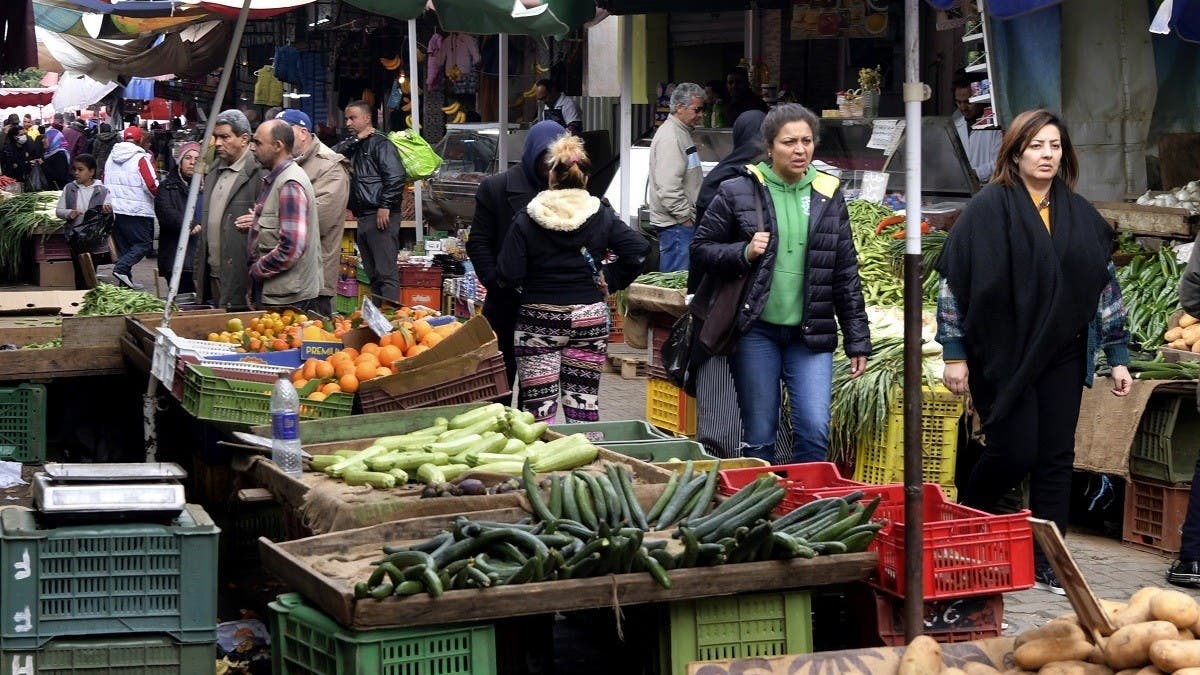Tunisians are suffering delays to salary payments and shortages of grains, medicines and sugar, a foretaste, some economists say, of a rapidly looming public finances crisis that looks increasingly hard to avert.
Outside the Ettahrir district of Tunis, taxi driver Ahmed ben Salem stood in a long queue at a bakery that has cut its working times because supplies are more limited than in the past.
For the latest headlines, follow our Google News channel online or via the app.
“This isn’t my only failed shopping trip. For the past month, I go around the district every day looking for semolina. I go through all the shops but without hope,” he said.
Any big hit to the standard of living in Tunisia, where the government imports and subsidizes many basic goods, would greatly aggravate an existing political crisis as President Kais Saied tries to cement one-man rule and rewrite the constitution.
Saied and government officials have blamed the delays and shortages on administrative glitches, labor union strikes, speculators or even a conspiracy by his opponents.
“They are trying to starve the people through medicine and food supplies,” Saied said last month.
Economists say there is a simpler cause: Tunisia is running out of money and so is struggling to pay state workers and foreign suppliers.
Talks on an International Monetary Fund (IMF) rescue package have been repeatedly stopped and started because of Tunisia’s political tumult, but they recommenced last month.
An IMF deal is seen as necessary to unlock further bilateral help from Western allies and Gulf states as Tunisia tries to finance its deficit and make debt repayments.
Central bank governor, Marouane Abbasi, has said Tunisia risks a crisis on the scale of those in Lebanon or Venezuela.
“There are teachers who have reached a state where they wake up in the morning thinking about how to survive the day without money. How they are going to feed their children,” said Lotfi Mansouri, 55, a teacher in Tunis.
In January, teachers’ salaries were delayed by more than a week. Diplomats have warned that such delays may grow more common if the government is unable to strike an IMF deal in the spring, something they say seems unlikely.
Big problem
“If the authorities do not reach an IMF agreement, they will not be able to mobilize the necessary loans and won’t be able to cover public spending except by the very worst solutions like printing money,” said economist Ezzedine Saidane.
That could prompt a sharp fall of the currency, very high inflation and the faster depletion of Tunisia’s remaining financial resources, he said.
Since December, labor union officials at the port of Sfax have said numerous grain shipments have not docked or unloaded because the state cannot pay for them. Trade Minister Fadila Rabhi has denied this, saying the delays were caused by labor union strikes and that there is enough grain to last until May.
Other subsidized staples, including sugar and semolina are also in short supply through government agencies, said wholesaler Tarak Tahri, 40. “None of them are available. In the past I always found them. But there’s a big problem now,” he said.
Though the state has not raised flour prices, some bakeries have raised the bread price by a quarter because they cannot get enough subsidized flour and have to use grain bought privately.
A national bakers association says there has been a continuous shortage of flour for three months, disrupting activity and pushing hundreds of bakeries towards collapse.
At pharmacies, some centrally bought medicines including for diabetes and heart conditions, are no longer available.
“There are dozens of medicines that we’ve been unable to buy for two months,” said Fathi, a pharmacist in the Omrane Superieur district who did not want to give his family name.
A retired customer, Noureddine Layouni, said he has asked a friend in France to post him his medicine instead.
“My situation is unbearable. Where are we going? Is this the prosperity that Saied promised us?” he said.
Read more:
Tunisia judges association calls for protest
Tunisian president cements power over judiciary
Tunisia president says he will name new Supreme Judiciary Council

 World3 years ago
World3 years ago
 World3 years ago
World3 years ago
 Business11 months ago
Business11 months ago
 Entertainment7 years ago
Entertainment7 years ago
 World7 years ago
World7 years ago
 Entertainment7 years ago
Entertainment7 years ago






